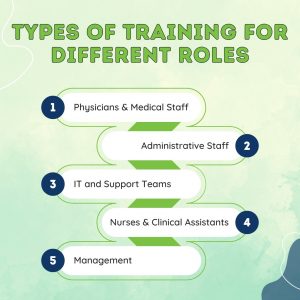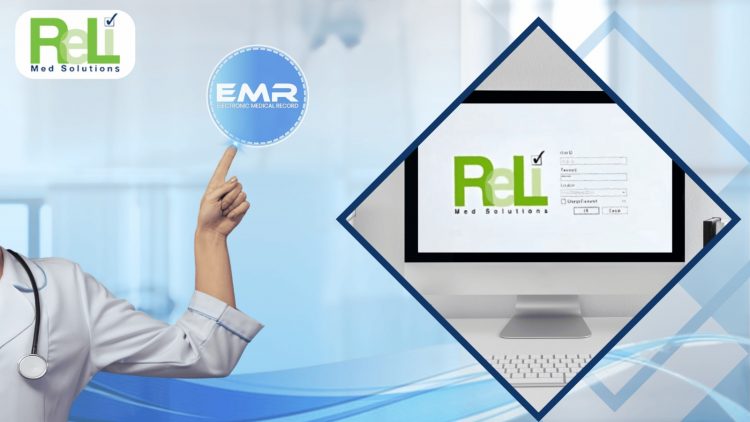The Role of Training in Successful EMR Software Implementation
EMR Software Implementation has become an important part of modern health care. It helps improve how health care organizations manage patient information. EMR software makes things faster and more accurate. But, the success of EMR Software Implementation depends on more than just the software. Training is key. Because of that, it is important to train all staff members well. Training helps staff use the software correctly and improve patient care. When staff are trained well, clinic operations improve too. Explore why training is important for the success of EMR software.
Why is Training Essential for EMR Software Implementation?
Training is essential because it makes EMR Software Implementation effective. If staff don’t know how to use the software, they can make mistakes. This can hurt patient care or cause problems. Like, if a doctor can’t find patient information quickly, treatment might be delayed. Administrative staff also need training to handle appointments, billing, and other tasks. Therefore, everyone must learn how to use the software. Training reduces resistance to change. If staff are trained, they will accept the new system. As a result, the software will be used to its full potential. Well-trained staff help minimize mistakes and make the most of the EMR system.
Types of Training for Different Roles
Different staff need different types of training. Since everyone uses the EMR system differently, their training needs are also different. Here is a breakdown of the training for each group:

- Physicians and Medical Staff: They need hands-on training to learn how to use patient records, enter clinical notes, and document treatment plans. Doctors and medical staff need this training because they use the system the most for patient care.
- Administrative Staff: They need training on scheduling, managing patient information, and handling billing. Administrative staff need this training since they help keep everything running smoothly.
- IT and Support Teams: These teams need deep training to learn how to fix problems, keep the system secure, and update the software. Because they are responsible for keeping the system working, they need to understand it very well.
- Nurses and Clinical Assistants: They need training on how to update patient progress and manage medications. Nurses and clinical assistants help support doctors and need to keep records up to date.
- Management: They need training on how to analyze reports and track system performance. Managers need to make data-driven decisions using information from the EMR system.
Overcoming Common Challenges During Training
Training for EMR software can be difficult, especially in busy health care settings. One big challenge is time constraints. Staff members often have a lot of work to do and may struggle to find time for training. As a result, it’s hard for them to focus on learning the system. Another challenge is resistance to change. Some people prefer old ways of doing things, like paper-based systems. This resistance can make it harder for them to learn the new software.
Another challenge is ensuring all staff are ready to use the system, as some may need more help. To address this, health care systems can schedule training during off-peak hours, use a phased approach, and provide ongoing support. Offering refresher courses or help desks can make training more effective.
How EMR Training Impacts the Overall Health care Workflow?
EMR training helps staff use the system well, which improves the health care workflow. For example, trained staff can do their tasks faster and more accurately. This reduces wait times for patients and improves service delivery. Medical professionals can access patient information right away, which helps them make faster decisions. Because of that, doctors can treat patients more quickly, which improves care.
Moreover, when staff are trained, they are less likely to make errors. This helps improve patient care and keeps the clinic in compliance with regulations. If the EMR system is used correctly, patient records are more accurate, and errors are reduced. So, this leads to better care and more efficient operations. When staff use the system correctly, the organization benefits from the EMR Software Implementation.
Why Choose ReLi Med Solutions for Your EMR Software Implementation?
At ReLi Med Solutions, we know that EMR Software Implementation is more than just choosing the right system. That’s why we offer training With our software that fits your team’s needs. Our expert trainers work with your health care organization to make sure every staff member is comfortable with the system. We focus on hands-on, role-specific training that helps your team learn quickly. Moreover, our training is flexible, so staff can learn at their own pace. So, let ReLi Med Solutions help you achieve a smooth EMR Software Implementation that improves patient care and clinic operations.
Conclusion
In conclusion, training is very important for the success of EMR software. By making sure everyone is trained well, health care organizations can get the most out of their EMR system. Training improves patient care, speeds up workflows, and increases data accuracy. Health care systems must prioritize training to ensure long-term success with EMR Software Implementation. Because of that, training helps improve operations and patient care. In addition, well-trained staff help reduce errors and make the most of Medical Billing Services and RCM. EHR systems work better when staff are properly trained, leading to a more efficient and effective health care environment.

